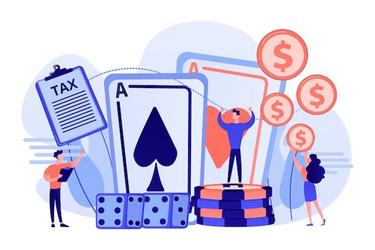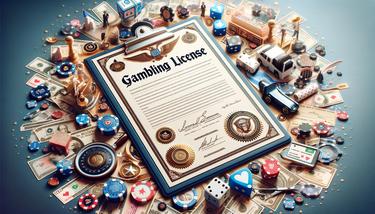What is a gambling license?
A gambling license is a legal certificate issued by a licensing authority or regulatory body that permits companies or individuals to legally offer gambling services. This certification is crucial for operating within the legal frameworks of jurisdictions that regulate gambling activities. Its primary purpose is to ensure that the gambling operator conducts its business in a manner that is fair, transparent, and free of criminal influence.
Key Facts
- A gambling license is mandatory for any business that offers gambling services, including online casinos, sports betting[1], and lotteries.
- The process of obtaining a gambling license involves rigorous scrutiny of the applicant’s background, financial stability[2], and fairness of the games offered.
- Gambling licenses are jurisdiction-specific, meaning an operator must obtain a license for each country or region where they intend to offer their services.
- The cost and requirements for obtaining a gambling license vary significantly between jurisdictions.
Importance of a Gambling License
Obtaining a gambling license is crucial for operators for several reasons. It not only legalizes the operation but also instills trust among players, ensuring them that the operator adheres to strict regulatory standards for fairness and security. Moreover, a licensed gambling business can enter into agreements with software providers, open bank accounts, and process transactions through legitimate financial institutions.
Overview of Gambling Licenses
A gambling license is a certification issued by a licensing authority or regulatory body, which allows an entity to legally operate gambling activities. These licenses are essential for ensuring the integrity, fairness, and security of gambling operations, protecting both operators and players.The requirement for a gambling license varies by jurisdiction, reflecting local laws and regulations governing gambling activities.
Importance of Obtaining a Gambling License
Obtaining a gambling license is crucial for establishing a legitimate and trustworthy gambling platform. It not only ensures compliance[3] with legal standards but also enhances credibility among players and partners. Furthermore, a license is often necessary for working with payment processors, software providers, and other key stakeholders in the gambling industry.Licenses also play a critical role in preventing fraud, money laundering[4], and other illegal activities.
Types of Gambling Licenses
There are various types of gambling licenses, depending on the nature of the gambling activities and the market. Common categories include online casino licenses, sports betting licenses, lottery licenses, and licenses for specific games like poker or bingo. Some jurisdictions offer comprehensive licenses covering multiple types of gambling.Operators must choose the appropriate type of license based on their business model and target markets.
The Licensing Process
The process for obtaining a gambling license typically involves a thorough application, including background checks[5], financial audits, and assessments of the gambling platform’s security and fairness. Fees and requirements vary significantly across different jurisdictions.Applicants must demonstrate their ability to meet regulatory standards, including responsible gambling[6] practices and customer protection measures.
Conclusion
A gambling license is a foundational element for any gambling business, ensuring legal operation and building trust with players and partners. Navigating the licensing process requires a deep understanding of the regulatory landscape[7] and a commitment to high standards of operation and ethics.For gambling operators, securing a license is a significant step towards establishing a successful and reputable gambling platform.
- Betting — The act of wagering money on the outcome of events, such as sports matches or horse races.
- Financial Stability — A requirement for license applicants to demonstrate sufficient financial resources to cover operational expenses and obligations to players.
- Compliance — The act of adhering to legal standards and regulations established by governmental bodies and regulatory agencies, particularly in the context of financial operations and transactions involving cryptocurrencies.
- Money Laundering — The process of making large amounts of money generated by a criminal activity appear to be legally obtained.
- Background Checks — The investigations conducted to assess the suitability and integrity of applicants for gaming licenses, including checks on financial history, criminal records, and business conduct.
- Responsible Gambling — Initiatives and practices aimed at promoting safe and controlled gambling, preventing gambling addiction, and protecting vulnerable players.
- Regulatory Landscape — The set of laws, guidelines, and policies that govern the use of virtual assets across different regions.
- Gaming Regulators European Forum (GREF). (n.d.). Regulation and Licensing.
- International Association of Gaming Advisors (IAGA). (n.d.). The importance of obtaining a gambling license.


